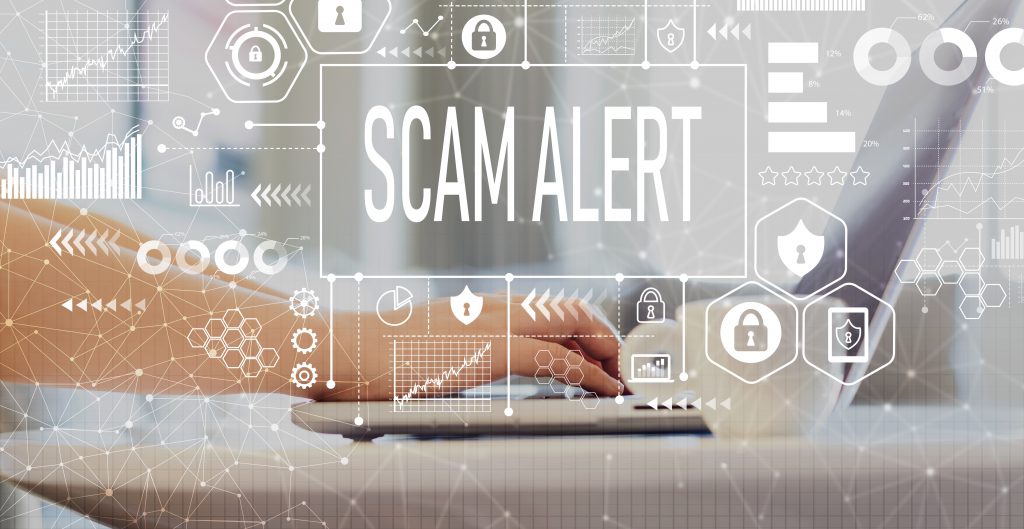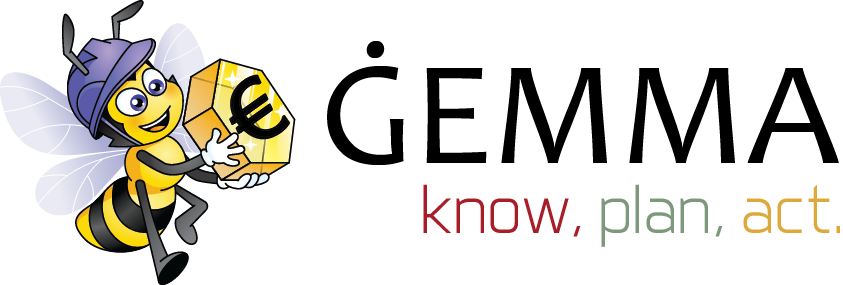Do you know how a scam works?

Recently we have seen a spate of scams in Malta – including phishing, romance fraud and business email fraud. Newspapers have reported that one business lost nearly €90,000 as a result of a business email fraud and over €100,000 have been defrauded from persons scammed by the Maltapost phishing scam.

In summer of last year, ĠEMMA and the eSkills Malta Foundation signed a strategic partnership to disseminate knowledge on digital financial capability. Fraud and scams is such one financial capability. Jointly we have issued 4 e-books on scams and fraud and Infographics on tips of how to protect yourself with regard to over 30 different scams and frauds. Both ĠEMMA and the Foundation have been disseminating these over their respective social media channels.

This is the first of 3 articles we are presenting on scams and fraud to make people more aware of what scams and frauds are, basic but important cardinal protection measures one should taken, and what one should do in the event that they realise they are scammed.
Most scams follow the same pattern – understand this pattern and it will be easier to spot. The way a scam works is described here.
The Scammer’s approach: A scammer will approach you with a story designed to make you believe a lie. S/he targets your emotions and behaviour – a chance to make money, to find a partner, to help somebody in need. Invariably the scammer will dress him/herself as a government official, a company – including branding names you are familiar with, an expert investor, a government official, a lottery officer, a lovely lady. The scammer will use any one of these approaches:
| Still the favoured method. Cheap and a good way to communicate with many persons. | |
| Social media (Facebook, Instagram, etc.), Dating sites, Online forum | Social media (Facebook, Instagram, etc.), Dating sites, Online forum |
| Online shopping, classifieds, and auction sites | These are used by scammers to trick you, with initial contact often made through reputable and trusted sites or fake websites that look like the real thin |
| Phone calls | Calls are made by scammers to homes and businesses in a wide variety of scams, from threatening tax scams to offers of prizes or ‘help’ with computer viruses |
| SMS | Scammers tend to send a whole range of scams, including competition or prize scams. |
The scammer’s tools are designed to get you to lower your defences, build trust in the story and act quickly or irrationally and proceed to the final stage – sending the money or providing personal information. The scammer’s tools include:
- Creating a sense of urgency so that you will not have the time to think things through and make you react on emotions rather than logic.
- Similarly, using high pressure sales tactics saying it is a limited offer, that prices will rise, or the market will move and the opportunity will be lost.
- Having all the hallmarks of a real business using glossy brochures with technical industry jargon backed up with office fronts, call centres and professional websites.
- Using your personal details to make you believe you have dealt with them before, and make the scam appear legitimate.
- Creating counterfeit and official-looking documents – documents that appear to have government approval or are filled with legal jargon can give a scam an air of authority.
- Similarly, using high pressure sales tactics saying it is a limited offer, that prices will rise or the market will move and the opportunity will be lost.
- Contacting you regularly to build trust and establish a relationship.
Asking for money may be set at the point of contact or after months of careful grooming. Scammers have their preferences for how you send your money. Methods vary: wire transfer, credit / debit card, bank transfer, Bitcoin, etc.
ĠEMMA has on 21st June 2021 signed a strategic partnership with the Local Councils Association. Both ĠEMMA and the eSkills Malta Foundation are working the Association so that come October 2021, monthly public fora are held on scams and fraud in local communities.

